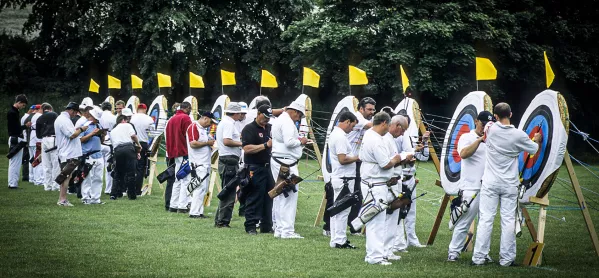- Home
- Leadership
- Staff Management
- Why we use a TEACHER model for staff appraisals
Why we use a TEACHER model for staff appraisals

Across education, awareness of coaching and its potential impact on teachers and leaders has been gaining momentum.
Often, coaching is linked to appraisals, helping give staff structure for their career development and providing a way to gain insightful observations from their line manager or specified coach.
Typically models such as GROW (Goal, Reality, Options and Will) or SMART (Specific, Measurable, Assignable, Realistic, and Time-bound) are used to track this progress and guide conversations.
There is nothing inherently wrong with these models but they were first designed for use in business coaching - not education.
This is why I decided to create a bespoke education-centric coaching model, with the apt acronym of TEACHER, that we use at our school for staff appraisals.
This has been in place for three years and has proved very popular with the staff that have used it, seeing it as a more organic model for coaching that helps them develop their skill sets and careers as a result.
How does the TEACHER model work?
The first thing to outline is the seven terms the TEACHER model encompasses: Target, Enlighten, Achievements, Choice, Help, Encourage and Reflect.
Target
The first element, Target, means discussing a target or goal with the appraisee. They may already have a goal for the year ahead in mind or need some support working out an appropriate target.
Whichever it is, it is key the coaching conversation helps the staff member understand their potential and what they want to achieve - but that is balanced with the reality that it is achievable.
- Get smart: Why teacher appraisals need SMARTER targets
- Trust-wide skills: How our trust is upskilling all teachers on SEND support
- Growing leaders: Why our trust built its own leadership pathway
After all, the appraiser will have feedback on the performance of the staff member, and before the goals can be confirmed, the appraisee needs to consider their performance and ensure they are selecting the most impactful goal.
Enlighten
This leads to the next stage of the coaching conversation - Enlighten. It is good practice to gather feedback from multiple sources - lesson observations, peer feedback and reflections on general contributions and professionalism around school.
If the appraiser is an effective coach, they will not just deliver the feedback but be able to guide the appraisee to reflect on their own strengths and weaknesses and help them obtain perspective on the situation.
After this stage, the appraisee should be clearer on the goals to focus on.
Achievements
The next stage is Achievements. I think it is important achievements are recognised and celebrated.
The appraiser may be able to engage in conversation without note taking, but eventually, there should be a written record and achievements should be noted.
Choice
The conversation can then lead to Choice. The appraisee may have multiple goals: they should have a goal focusing on improving the education of pupils, but they may also have personal work goals, too.
Choice can be about guiding the appraisee to prioritise their goals. Choice is also the stage where options for achieving the goal are discussed.
Help
The Help stage of the model is where the appraiser helps the appraisee write a plan for achieving their goals, including subdividing goals into small steps and milestones and considering time and resource requirements.
Encourage
The Encourage stage is about helping the appraisee recognise their motivations and the support they may need in order to achieve their goal.
Reflect
The final stage of the model is to encourage time to Reflect. The appraisee needs to reflect on their progress, to eventually reflect on achieving their goal and, as part of the coaching cycle, consider what their next goal may be.
Since introducing this model, I think it has been clear we have been able to ensure coaching conversations and appraisals are more suitably geared towards education-related outcomes while retaining the key concepts of business coaching models to ensure a sound framework for appraisals is in place.
Finally, its emphasis on celebrating achievements and empowering teachers to follow their own plans for success can lead to greater improvements in pupils’ education and more fulfilled teachers.
Kirsty Stokes is director of studies, pre-senior baccalaureate lead and head of geography at St Andrew’s School, and is the author of TEACHER Coaching
Keep reading for just £1 per month
You've reached your limit of free articles this month. Subscribe for £1 per month for three months and get:
- Unlimited access to all Tes magazine content
- Exclusive subscriber-only stories
- Award-winning email newsletters
topics in this article



